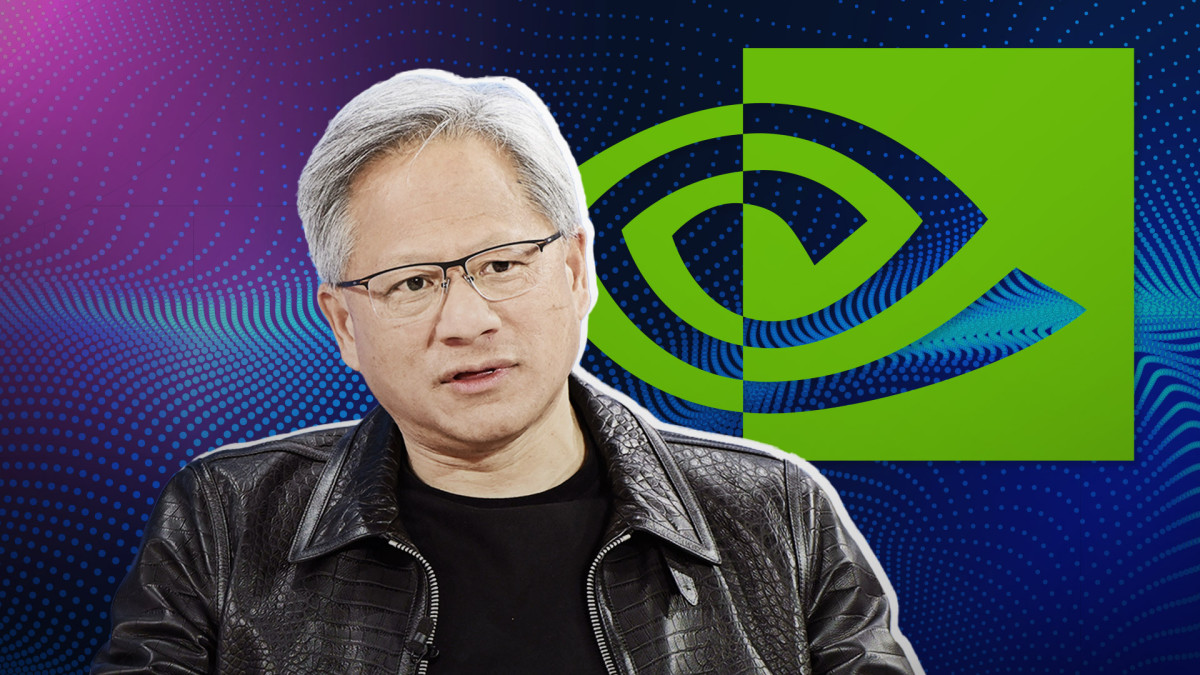
Nvidia (NVDA) -) shares hit another record high Wednesday, setting up the stock for its best run of gains since last spring, as investors continue to build on the bullish thesis that underscores AI-related chipmakers.
Nvidia, which earlier this week unveiled a new set of AI-focused chips designed for the broader consumer market, looks to be getting an extra boost from better-than-expected sales figures from Taiwan Semiconductor. (TSM) -)
The world's biggest contract chipmaker, which is scheduled to post detailed fourth-quarter earnings next week, said overall sales for the three months ended in December came in at $20.1 billion, just ahead of LSEG forecasts and largely flat with the year-earlier level.
Smaller rival Micron Technology (MU) -), meanwhile, told investors late last month that it expected to post a narrower-than-expected second-quarter loss in February, with revenue approaching $5.3 billion, thanks to what it saw as improving AI demand.
Citing data from an in-house survey, Wedbush analyst Dan Ives argues that AI monetization and use cases are "exploding across the enterprise and consumer landscape," and are boosting the value of tech stocks from Nvidia to Microsoft (MSFT) -), Google (GOOGL) -), Palantir (PLTR) -) and Datadog (DDOG) -).
"Currently, over 50% of all enterprises we recently surveyed see 20+ use cases for Generative AI and 80%+ of all enterprises see 10+ use cases including data analysis, marketing content creation, document editing/summarization, and many more to improve business operations, increase efficiencies, and create a more cost-effective capital structure with the benefits of using Generative AI becoming increasingly clear," Ives said in a recent client note.
Nvidia shares were marked 2.2% higher in late Wednesday trading to change hands at $543.34 each, a move that would extend the stock's six-month gain to around 28.8% and value the group at just over $1.34 trillion.
The stock hit a record $546.00 each earlier in the session amid a run of gains that saw the stock rise more than 12% over the past four days. That's the strongest rally since its blowout second-quarter earnings in May, which effectively fired the starting gun to the tech's AI-driven surge.
China export challenge facing Nvidia
Nvidia nonetheless faces a significant near-term challenge in completing the launch of AI chips for customers in China, following a ban of high-end exports put in place by the U.S. government late last year.
Reuters has reported that Nvidia will delay delivery of the new H20 chips until the first quarter of this year, a move that could put its market share dominance in the world's second-largest economy at risk. The H20 is the most advanced of the three chips Nvidia is developing in the wake of enhanced restrictions put in place by the Biden administration in October.
Last month, Nvidia CEO Jensen Huang told a conference in Singapore that it was difficult to predict the revenue impact of the new U.S. restrictions on tech exports to China. But he added that it would nonetheless seek both advice from customers and counsel from the U.S. government to tailor its semiconductors for sale in the $7 billion market.
"Nvidia has been working very closely with the U.S. government to create products that comply with its regulations," Huang said. "Our plan now is to continue to work with the government to come up with a new set of products that comply with the new regulations that have certain limits."
Nvidia has warned that China sales will likely slow "significantly" over the current quarter as a result of the new rules, a view that clouded the group's better-than-expected third-quarter earnings on Nov. 22.
Chief Financial Officer Colette Kress noted that China sales, which comprise around 20% to 25% of total group revenue, would likely slow over the current quarter as a result of new export restrictions put in place by the U.S. government. The move was aimed at limiting Beijing's access to AI and other high-tech gear.
She said, however, that the decline would be largely offset by gains in other regions where demand for the chips that power AI-related technologies remains firm.
- Action Alerts PLUS offers expert portfolio guidance to help you make informed investing decisions. Sign up now.







